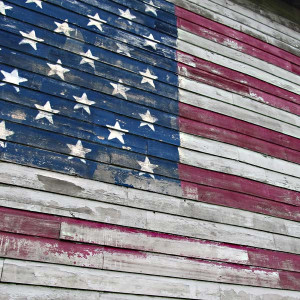 Aaron Copland’s 1944 ballet score, Appalachian Spring, has already been the subject of two Listeners’ Club posts (here and here). But let’s return to this American masterwork once more and listen to Leonard Bernstein’s 1982 Deutsche Grammophon recording with the Los Angeles Philharmonic. You would be hard pressed to find a more exciting and soulful interpretation of the Appalachian Spring Suite, including Copland’s own rendition and Bernstein’s slightly faster “definitive” 1961 recording with the New York Philharmonic.
Aaron Copland’s 1944 ballet score, Appalachian Spring, has already been the subject of two Listeners’ Club posts (here and here). But let’s return to this American masterwork once more and listen to Leonard Bernstein’s 1982 Deutsche Grammophon recording with the Los Angeles Philharmonic. You would be hard pressed to find a more exciting and soulful interpretation of the Appalachian Spring Suite, including Copland’s own rendition and Bernstein’s slightly faster “definitive” 1961 recording with the New York Philharmonic.
Appalachian Spring begins and ends with two overlapping chords which blend into hazy pandiatonic harmony. It’s a sound which seems to emerge from the American landscape: expansive, fundamental, and eternal. Time seems suspended. But then a new, blindingly bright voice suddenly enters, jolting us out of our daydreams (3:09).
Bernstein’s performance is infused with a sense of dance, rhythmic intensity, and sparkle. We hear this towards the end, around 20:13, as Simple Gifts develops into a sparkling rhythmic motor. There are also moments of sensuous repose. Listen to the way the music takes us into new, distant territory around 17:20. A few moments later, we turn a corner and suddenly find ourselves back at the opening. But this time, there’s a sense that the opening pandiatonic chords are reawakening and trying to remember. After the final climax of the piece subsides, we’re left with a moment of veiled introspection (22:24).
These are a few of the details which place this performance a few notches above so many other excellent recordings of Copland’s Appalachian Spring. Take a few minutes and listen. Then, if you feel inspired, leave a comment in the thread below and share your own thoughts.
https://www.youtube.com/watch?v=8ssM4ZSUX1A
[unordered_list style=”tick”]
- Find this recording at iTunes, Amazon
- Hear a live performance of the complete ballet score with Leonard Slatkin and the Detroit Symphony.
[/unordered_list]

